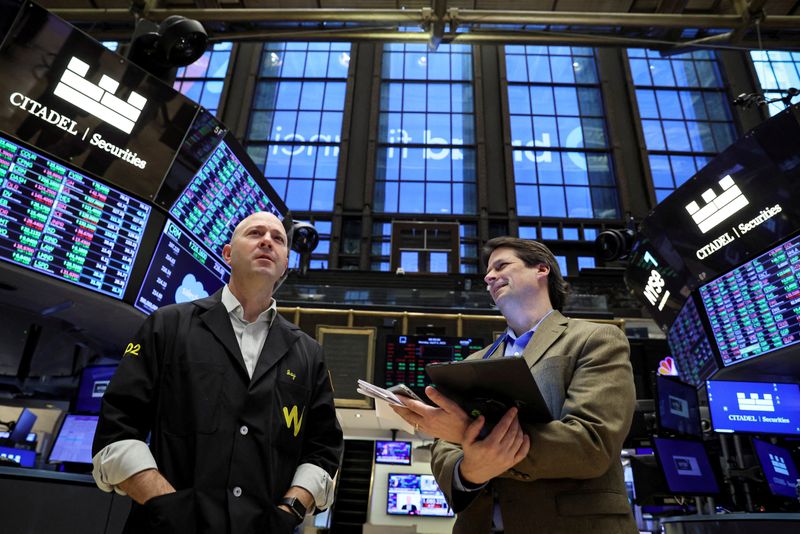Select Language

U.S. stock index futures plunged Sunday evening after Wall Street saw its steepest two-day drop in more than five years following President Donald Trump’s announcement of sweeping trade tariffs, which fueled recession fears and faced retaliation from key trading partners.
President Trump said on Sunday that his new tariffs are the only way to fix major trade deficits with China and the European Union, declaring that duties will stay in place.
Investors were worried Wall Street might log its worst one-day decline since 1987’s “Black Monday,” when markets around the world crashed on heightened risk aversion.
S&P 500 Futures dropped 4.5% to 4,892.25 points, while Nasdaq 100 Futures plunged 5.5% to 16,587.0 points by 20:02 ET (00:02 GMT) .Dow Jones Futures tumbled 3.5% to 37,191.0 points .
Trump tariffs escalate trade war; China retaliates, EU seeks unity
President Donald Trump last week announced the implementation of a 10% universal import tariff, which came into effect April 5, with additional higher tariffs on major trade partners, including China, Vietnam, Japan, and the European Union, set to take effect on April 9.
In response to the U.S. tariffs, China has imposed matching 34% duties on American goods, further intensifying the trade conflict.
The European Union is also seeking unity among its member states to formulate a coordinated response, potentially leading to additional retaliatory measures.
These developments have heightened fears of a global trade war, with significant implications for international commerce and economic stability.
US stocks recorded steepest 2-day decline since COVID pandemic

